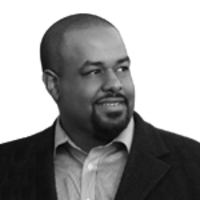A wave of hatred is threatening to crash on this country. It is a seismic crash of historic proportions. And some of the most prominent Christian voices in the nation are standing by, watching their own people drown in the growing flood.
Today in Charlottesville, Virginia White nationalists—many of whom claim to be Christians—sought to define America. They spoke with one voice, with AR-15 rifles slung over their shoulders and Confederate Flags, Trump signs, and skull insignias on full display. They said that America is not a place for Jews and Blacks. They said Muslims and immigrants are not welcomed here. They also said that their rally "fulfills the promises of Donald Trump"—David Duke's words, not mine. Duke, the Klan leader, continued: "That's what we believed in, that's why we voted for Donald Trump—because he said he was going to take our country back." Somebody went so far as to drive a car into a crowd, mowing down those who came to protest the nationalists. No muted tweets from the President today can change these stunning facts.
If anyone was unsure before, after Charlottesville we should all now know exactly what "take our country back" means. It means back to a place where whites have continued superiority in every part of American life. Back to a place where Blacks, Jews, Latinos, Asians, and immigrants, Muslims, women, gays and more live in relative subjugation. The haters have spoken and they are clear. What is not clear is the position of many Christian leaders, especially in the white (and even some in the Latino) Evangelical church.
Deafening silence from the pulpits in Orange County. Telling quiet from the mega-churches in Atlanta. Nashville, muted. The folks at Liberty University—the president and his activist friends—on the careful moral sidelines of this fight. Wheaton and Manhattan and Chicago and more, tentative and couched. Perhaps they'll echo Trump's ambiguous condemnation. Perhaps we'll hear nothing at all.
These evangelical pastors and Christian activists, authors, and leaders are fearful. They are fearful of sanction from congregations where people in the pews may have voted for a morally problematic candidate because they did not like the alternatives. They're fearful of losing their platforms, book sales, positions if they stray too far. They are fearful of having their club membership revoked. But as they stand in fear they are also slowing ceding moral authority. They stand while the nation—even the world—simmers and threatens to burn.
My friend LeVar Burton said today that "this moment is but another in a chain of opportunities to choose what you stand for." It is an opportunity, indeed. Far too many in the Christian church sanctioned slavery. Many purported Christians even owned, bought and sold human beings themselves. Evangelicals took decades to stand against Jim Crow, and only stood when the fight was long over. From Apartheid in South Africa to women's rights here at home, far too many Christian pastors and leaders moved when it was safe, if at all.
They may have a heart for digging wells in Africa or a passion to end the scourge of human trafficking; these issues are centrally important, but they are also safe, problems that everyone agrees we need to solve. But when it comes to the more complex moral disasters right in front of us, the fire of courage often fails to burn. This is why many evangelicals hold on so dearly to the history of William Wilberforce, the 18th Century Christian abolitionist The tale of Wilberforce makes them feel courageous, although the courage he showed hundreds of years ago is a far cry from what we see today. Today, courage is in short supply. We are grateful for conservative pastors and leaders like Dr. Russell Moore, Dr. Joel Hunter, even Erick Erickson and others who speak out at risk to themselves, but they should not have to stand alone.
What would it mean for evangelical Christian leaders to speak out in the age of Trump? It means consistently leveraging public platforms and private leadership to define what is right and wrong. In the case of what we just saw in Charlottesville, it means sermon series on the dangers of white supremacy, the reality of privilege, and the importance of empathy for those who do not look like you. It means using podcasts and books and voices to lift up morality and condemn immorality, whether that immortality is found in the streets of Charlottesville or the Oval Office of the White House. It even means admitting with humility that they don't know what to do, but know they should do something, and then showing an openness to take action.
The world is watching American Christians. Many who need the Good News of the Gospel are disgusted and pushed away by the bad news of a quiet church. Without question, this past presidential election kicked wide open the floodgates of hatred in this country. All around us, we see the seas rising. Will Evangelical Christian leaders follow the example of Jesus and step, with faith, out onto uncertain waters? Or will they tremble in fear, as the country drowns in the flood?





